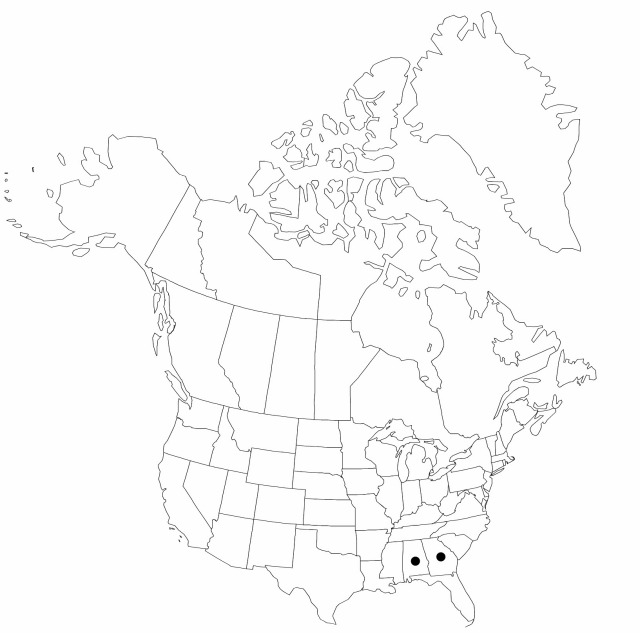Fimbristylis brevivaginata
Sida 15: 318, fig. 1. 1992.
Plants perennial, cespitose, 20–50 cm, base bulbous; rhizomes scaly, compact, strongly tapering. Leaves nearly polystichous, spreading to ascending, 1/2 as long as culms; sheaths contracted, abruptly dilated, margins fimbriate-ciliate distally; ligule present, complete; blades narrowly linear, 1.5–2.5 mm wide, flat to shallowly involute, margin intermittently scabrid-ciliate, abaxial surface usually glabrous. Inflorescences: anthelae mostly simple, of 2–7(–9) spikelets, ascending-branched, slightly mostly longer than broad, scapes slender, 1 mm wide, to very compressed distally;, proximalmost involucral bract shorter than anthela. Spikelets red-brown, narrowly ovoid to lanceoloid or cylindric, 5–15 mm, fertile scales broadly ovate, 4.5–5 mm, glabrous to puberulent, midrib excurrent as cusp or mucro. Flowers: stamens 3, styles 2-fid, flat, fimbriate. Achenes dark brown to greenish brown, obovoid-lenticular, 1.2–1.5 mm, faces each 11–13-ribbed, cancellate, ribs connected by vertical rows of transversely rectangular pits.
Phenology: Fruiting summer–fall.
Habitat: Sandy seeps and margins of shallow temporary pools on and around sandstone and granitic outcrops
Elevation: 0–500 m
Discussion
Of conservation concern.
Fimbristylis brevivaginata, with its slender, distally compressed scapes and its complete, transverse ligule of short hairs, bears a strong resemblance to Fimbristylis caroliniana, yet it also has bulbous culm bases that produce short, strongly tapering, bulbousbased rhizomes, reminiscent of some F. puberula races. It is very infrequent, known to occupy fewer than ten of the hundreds of sandy rock outcrops in the Georgia Piedmont and Alabama Cumberland Plateau.
Selected References
None.

